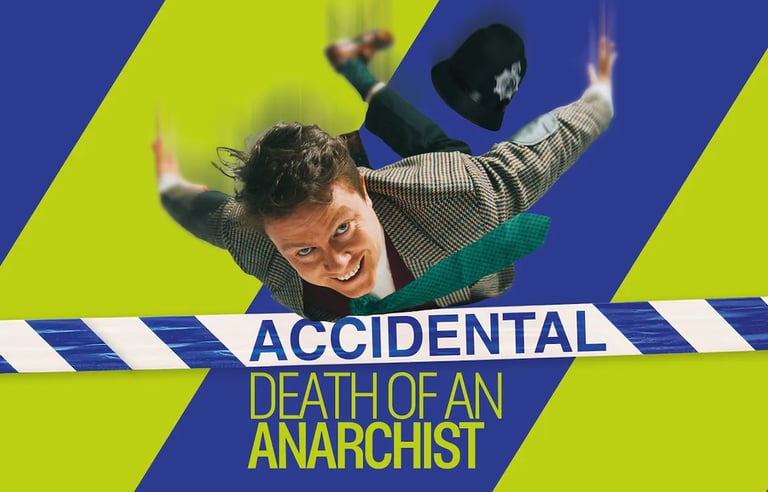Anarchism has most commonly been described as a moral doctrine encompassing egalitarianism and personal freedom as its core values, and rejects all forms of hierarchical structures and authority (e.g. governments, police and corporations). The methods of anarchist protests include symbolic, pacifistic actions, but also actions of civil disobedience and ‘direct’ actions of sabotage and destruction of property. (1)
Anarchy what does it means and the fact that nothing about anarchism is accidental, brings to begin with suspecting the anarchist who brings up facts to us and the face of the police. As the only person who acknowledges us as social creatures of a certain sophistication, the anarchist questions our condition of having to act a lot of the times while considering the world as his audience. Painfully at the top of the play, the anarchist reveals that he is afraid of blackout and darkness, as there will be no audience hence no act anymore. Blackout and the sharp emptiness of it often tempts the audience to clap and give a meaning to their existence. Doesn’t blackout resonate fear of abandonment, fear of loneliness and fear of death, casting shadow on a lot of us?
Opening with that, we glide gradually into the story of the anarchist to investigate accidental death of an anarchist. We can argue three accounts of anarchist characters in the story, one that is suspiciously fallen dead already at the beginning of the play, one that interrogates “the” death, while questionably is analysing his own, and the third the judge who comes on stage right at the end of the play. One thing might be made clear, that such accidents happen all the time, over and over.
As a medium to deliver the current concerns about practice of policing, the play invested a lot in relatively recent events having the police involved, some of which fairly shocking to have happened; however, this could be diluted in a hair thin too far fantasy theme and high pace of the the exhausting act exhibited. It felt could possibly have benefited from being taken out of the comedy context temporarily and being given some deserved chance to shine out as fact.
I particularly liked the distinctive change of the anarchist’s attitude when he changed the dummy hand to a captain’s hook, when he happened to assert more, make a better trouble and lead the accidental suicide. This review might enjoy if this is not unfolded further here.
It makes it easy to be convinced to take the question into consideration: whether or not you are a narcissist, is life just a panto on which stage we all perform out acts, throw chocolates, find approval and meaning to existence.
1) Kristof Dhont, Alain Van Hiel, Sven Pattyn, Emma Onraet, Els Severens, A step into the anarchist’s mind: examining political attitudes and ideology through event-related brain potentials, Social Cognitive and Affective Neuroscience, Volume 7, Issue 3, March 2012, Pages 296–303,


